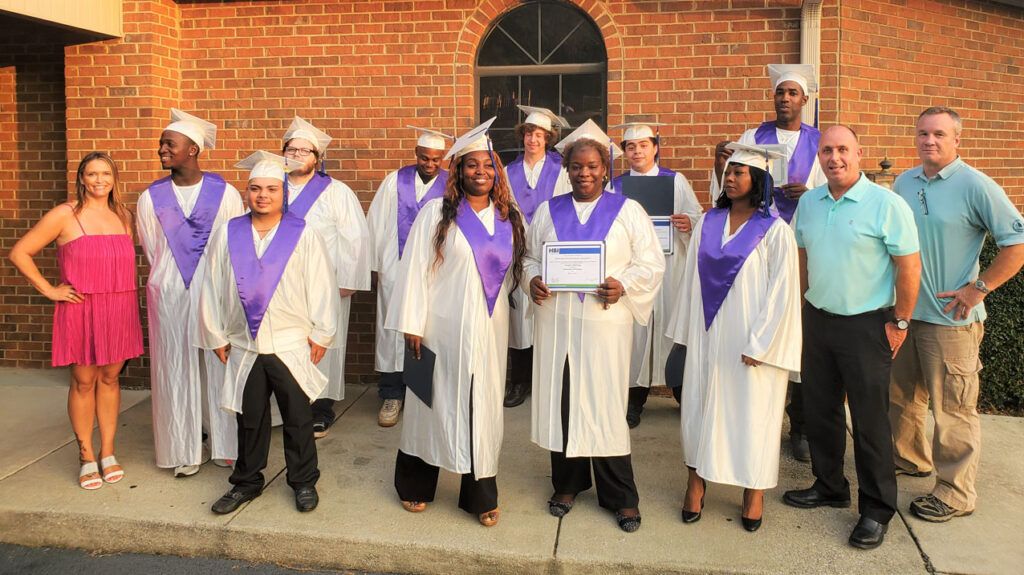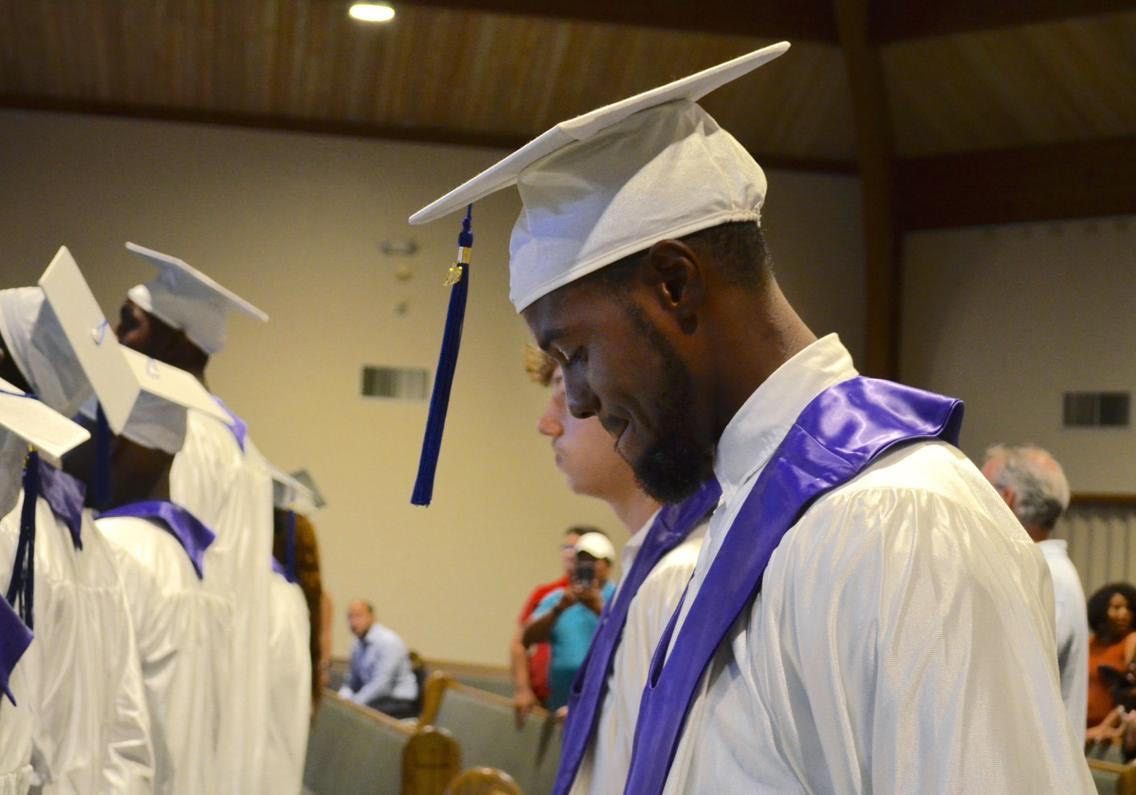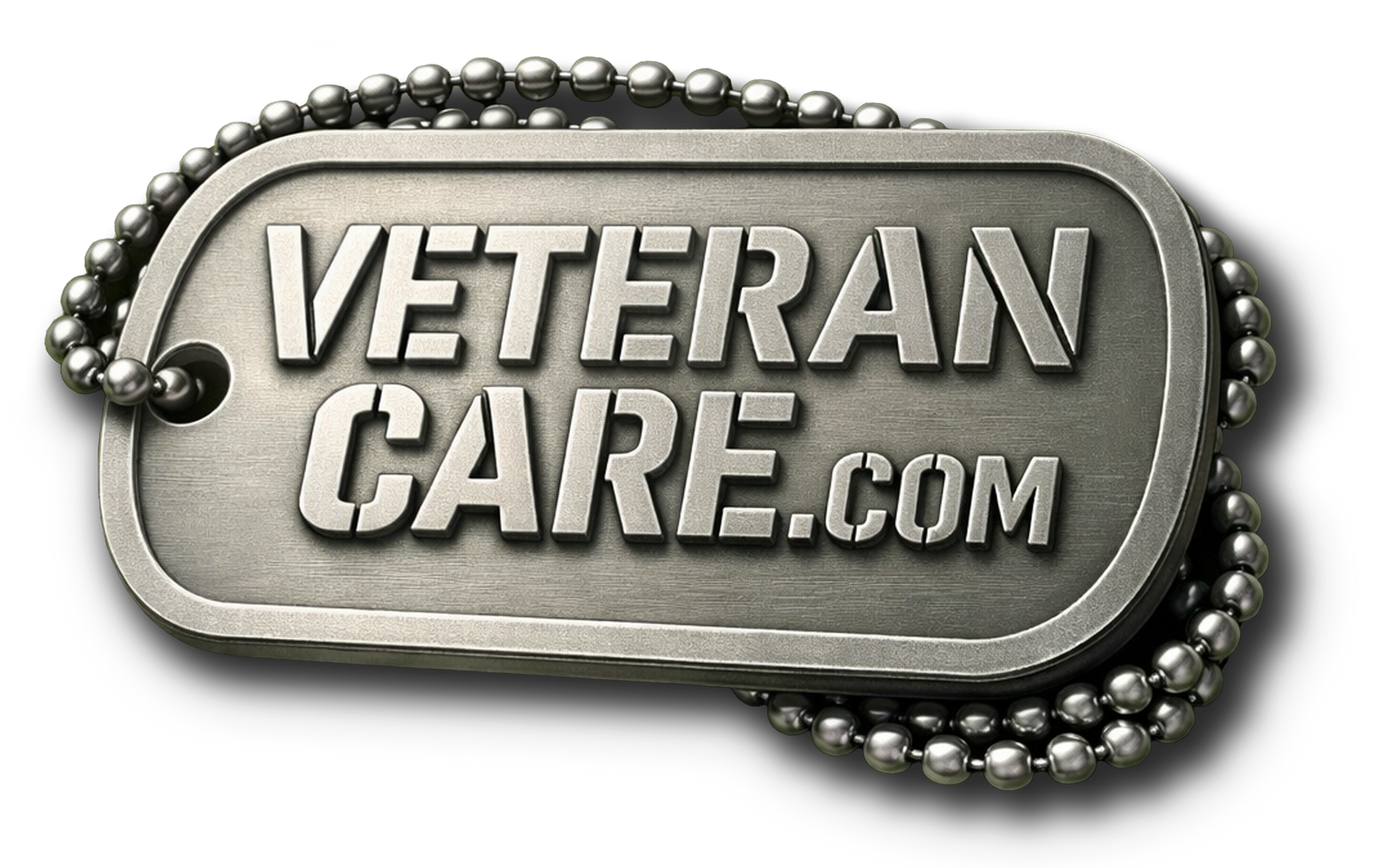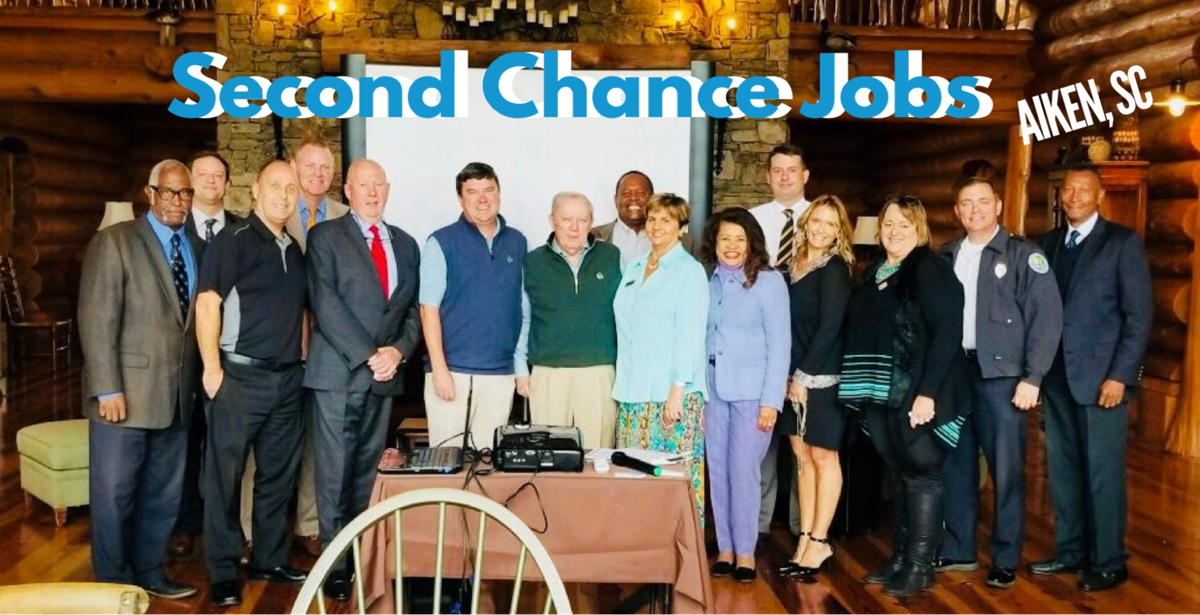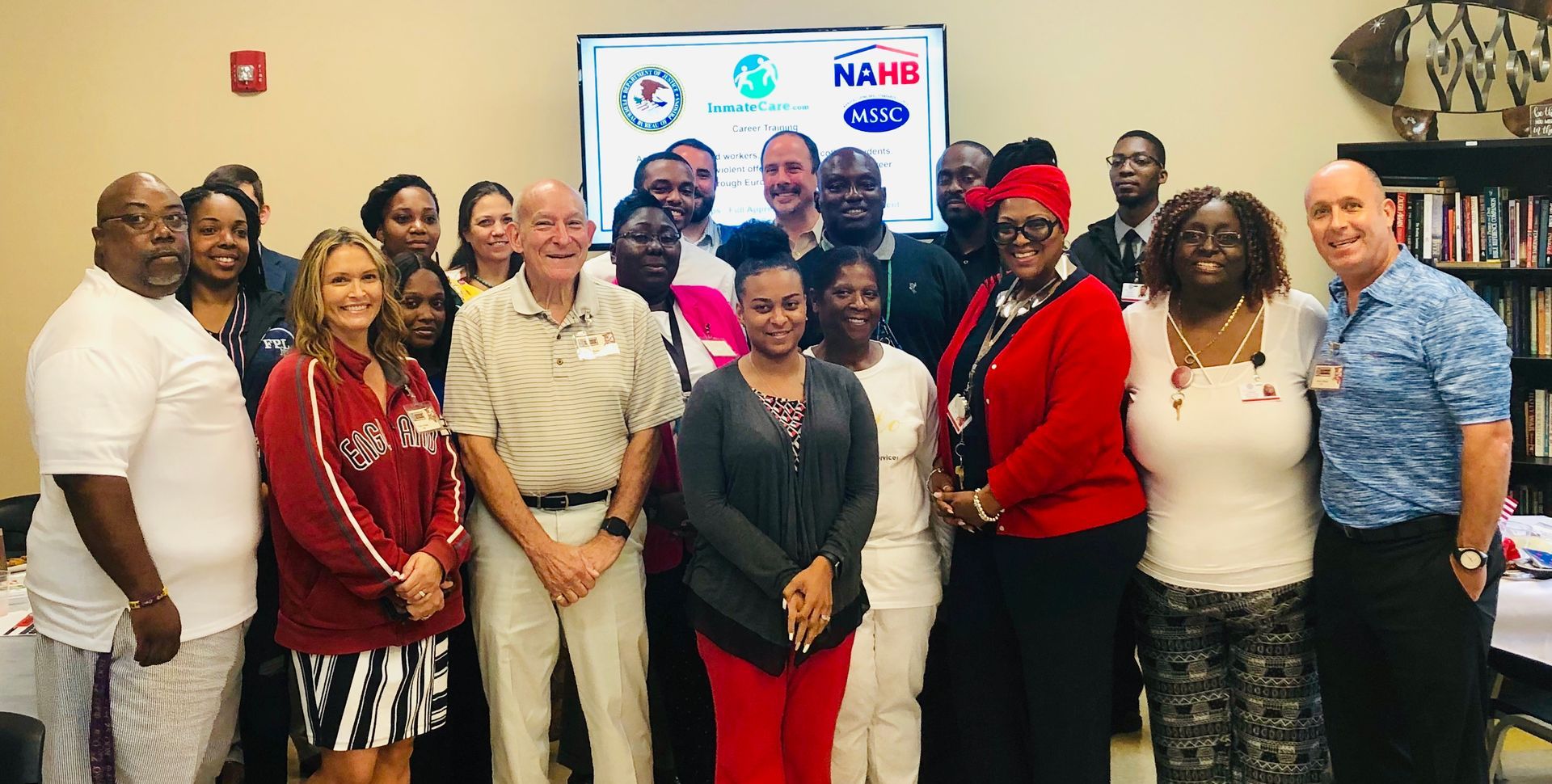Charleston-area veterans find more than a second chance through nonprofit
NORTH CHARLESTON — Before her first-ever interview over Zoom, Shakarra Hewttle’s eldest son got up early, double-checking that her headphones worked and her computer was set up just right.
It was Amir Cruz, 13, who suggested the family’s bookshelf, tucked in the corner of their sunken living room, as the backdrop for the video conference call. He unplugged their motion-activated doorbell that loudly alerts the whole house when someone drives by. Background noise being an important consideration when applying for remote positions, like the ones Hewttle is hoping to land.
It’s been over a year since the single mother of two worked. She quit her collections job around October 2021, when she was diagnosed with ovarian cancer.
“They’re watching me,” Hewttle said of her boys, ages 10 and 13, whom she homeschools. “I need them to see how hard I work and that I have a job and that I provide for them.” With the support — and some technical help — from her boys and Second Chance Jobs, a nonprofit that recently received a grant to help Charleston-area veterans who are unhoused or at risk of becoming homeless reenter the workforce, Hewttle is confident she’s now on the path toward self-sufficiency.
Straight out of high school, Hewttle spent five years in the Navy working as an operations specialist and an aviation structural mechanic for helicopters. But since leaving the military, she’s struggled with her health and to find stable housing. While pregnant with her youngest son, she left everything behind, including an abusive partner.
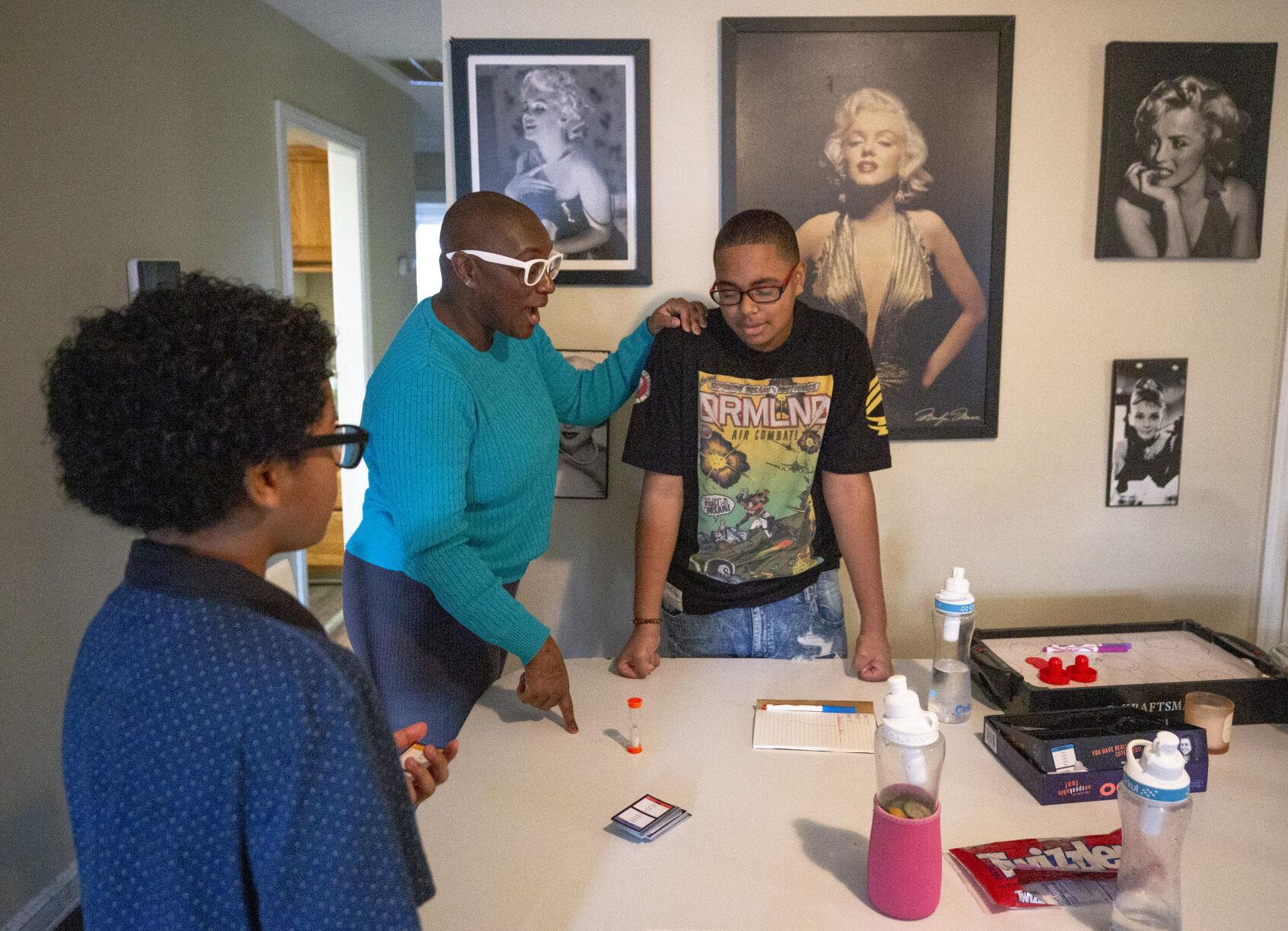
“I went through a really bad relationship, which caused me to have to use that exit plan, where you just had to go,” she said sliding her hands together to show how quickly she had to make a break for it. “You had to leave everything that you knew, and called home.”
She was sleeping on a friend’s floor and her son on the couch. She had no money. No transportation. And nowhere to go. Hewttle reached out to the U.S. Department of Veterans Affairs, where she was placed into transitional housing. She still receives housing support, but two years ago, she moved into a rental property in North Charleston, where the boys each have their own rooms.
In August, the VA connected Shakarra with Second Chance Jobs, where she has access to personal finance classes, career coaching and mental health counseling. “This is life changing,” Hewttle said.
Debbie Slaven, executive director for the nonprofit, said it’s not enough to just get someone a job. They try to build up the support system around particularly vulnerable populations like veterans and the formerly incarcerated in hopes of keeping them from becoming homeless.
“The main thing is to get them stable first, with housing and their basic needs met,” Slaven said. This can be as simple as providing work-safe shoes for a participant, or help with bills.
The organization, which started as a job training program aimed at reducing recidivism among those who had been to jail or prison, received $1.5 million from the Department of Labor to expand its offerings to veterans. To qualify for the Homeless Veterans’ Reintegration Program, an individual must have served in the military and be at-risk or homeless, which could mean they are couch surfing or living in a car, tent, city, motel, shelter, Slaven explained, or referred by another VA-connected program, like Hewttle.
Their focus was on skilled trades like carpentry, electrical and welding, where there is often a dearth of workers, according to Slaven. The grant has allowed the group to expand to more holistic services like counseling.
But the federal dollars, which are spread over three years, can only be used for workforce development and job-specific training, so the nonprofit relies on partners and additional fundraising to help prop up participants in other ways.
Devin Clark, who also served in the Navy, was forced out of his West Ashley apartment when his rent doubled.
Slaven, and her husband Colin, the training coordinator for the nonprofit, helped Clark find a new place near Neal Brothers, a warehouse and logistics company that partners with groups like Second Chance Jobs to hire skilled workers. In November, Clark was hired there as a forklift operator. The job required a certificate, which he earned through the program, and continues to receive on-the-job training and advancement opportunities. But less than two weeks into the job, rent came due, and Clark was again facing eviction.
“I’m out here doing my part, but the cycle doesn’t stop,” Clark said.
The Slavens used their network of veterans’ support groups to cover his bills until Clark earned enough to pay them himself.
“I don’t look for handouts. But handups, I can work with that,” the father of three said. “I’ve been working since I was 14. Just because I wasn’t in the military no more didn’t mean I can’t work.”

Around 2018, the couple started the nonprofit in Aiken. Colin Slaven was just four years removed from a 18-month sentence in federal prison. He had taken a plea deal for financial crimes.
While locked up, Slaven said he saw a revolving door: inmates would get released only to return again because they couldn’t find work and returned to criminal activity. Slaven called it his “ah-ha” moment and started developing the idea that would eventually become Second Chance Jobs. The Slavens boast a 95 percent retention rate among participants for a year after gaining employment.
“It’s not just about getting people the housing, the clothing and the food,” Colin Slaven said. “It’s about getting them self-sustainable again, getting them back on their feet. Getting their pride back, and their hope and faith.”
Hewttle hasn’t landed a job yet, but the interview her son helped prep her for went well, she said. Nonetheless, she says she’ll be happy to be out of the program as soon as possible.
“That means I’m where I need to be,” she said. “They’ve helped me get to where I need to be.”
